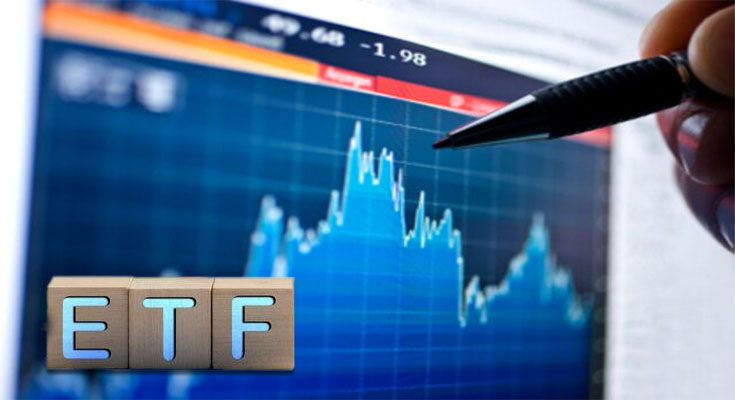Are you tempted to get in on the current trend of Exchange Traded Funds (ETFs) but need to learn how they work? Investing in ETFs can be an effective way to diversify your portfolio and achieve long-term financial goals. Still, there are a few things every investor should understand before taking the plunge.
In this article, we’ll discuss the basics of ETFs so you know what to expect when making such an investment. We’ll also cover some potential pitfalls associated with investing in ETFs and provide tips for those looking to start building their portfolio with them. Whether you are a new or experienced investor, understanding these topics is essential for maximising potential returns while minimising the risks of buying ETFs. Let’s dive deeper.
Understand what an Exchange Traded Fund (ETF) is and how it works
Exchange Traded Funds, commonly called ETFs, are investment funds traded on stock exchanges like stocks. Unlike mutual funds, ETFs can be bought and sold throughout the day at market prices. Essentially, an ETF owns several assets, like stocks or bonds, and divides ownership of those assets into shares, which are traded on an exchange. ETFs are a cost-effective and easy-to-use investment vehicle, allowing investors to diversify instantly without needing significant minimum investments.
Additionally, ETFs offer a wide range of investment strategies, which can be tailored to suit the individual requirements of investors. By understanding how ETFs work and their advantages, investors can make well-informed investment decisions that align with their investment goals. A Saxo forex broker can help you to understand the complexities of ETF trading more deeply.
Research different ETFs to determine which will best fit your investment objectives
With so many ETFs available, it is essential to research the ones that are a good fit for your investment strategy. Factors such as expense ratios, asset allocations, and management strategies should all be considered when selecting an ETF. Additionally, pay attention to trading costs and taxes associated with each type of ETF, as these can significantly impact overall returns.
It’s also helpful to review the historical performance data of different ETFs before investing to gain insight into how they have performed in past market cycles. This information can help you make more informed investment decisions based on your own personal risk tolerance and financial goals.
Consider the potential risks associated with investing in ETFs
When investing in ETFs, it’s essential to be aware of their associated risks. As ETFs are subject to market conditions, their performance is not guaranteed, and investors can lose money if market prices decline. Additionally, some ETFs are more volatile than others and may experience sharp price fluctuations over short periods.
In addition to market risk, liquidity risk can also be a factor when trading ETFs. It means that investors may need more buyers or sellers in the marketplace to buy or sell shares at a desirable price. Understanding these potential risks is essential to make an informed decision before investing in any particular ETF.
Pay attention to fees related to ETFs, including annual management fees and trading costs
When investing in ETFs and the stock that makes up the fund, it’s essential to pay attention to their associated fees. Most ETFs have annual management fees charged for maintaining and managing the fund and trading costs, which can vary depending on the type of ETF. Some brokers may also add commission charges for buying or selling ETF shares.
It is essential to research all applicable fees before investing in any given ETF so you know exactly what you will be paying for your investment. Additionally, many brokers offer fee-free trades occasionally, so it pays to shop around and take advantage of these offers whenever possible.
Understand tax implications for any profits or losses incurred from investing in ETFs
It is essential to understand the tax implications of investing in ETFs. Depending on the type of ETF, potential returns may be subject to capital gains taxes when you sell shares for a gain. Additionally, losses incurred from trading can also be used to offset any taxable income.
It’s essential to familiarise yourself with applicable tax laws to know your obligations and make informed decisions when investing in ETFs. A qualified financial advisor or accountant can provide expert advice on how best to manage taxation related to your investments.
Monitor your investments regularly to ensure they are performing according to the plan
Finally, it is essential to regularly monitor your investments in ETFs to ensure they are performing according to plan. Tracking price movements and understanding their factors can help you make informed trading decisions. Additionally, assessing any potential changes in market conditions or investment strategy shifts can help you stay ahead of the curve and adjust your portfolio accordingly.
By understanding how exchange-traded funds work and developing a comprehensive strategy for investing, investors can minimise risks while maximising potential returns from their ETF investments. With so many options available, taking the time to understand what you’re getting into before diving into an ETF investment is essential for achieving long-term success with these versatile instruments.





